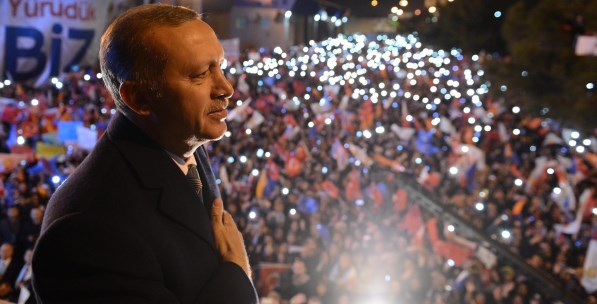Contesting narratives and debates about historical events has been a significant source of discord between countries around the world.
The textbook wars between China and Japan and the dispute over the Katyn Forest Massacre between Russia and Poland are just a few examples of historical events that have poisoned relations between states. Although wars might be long over, historical events continue to impact relations both at the public and governmental level, generating some form of "cold conflict." The emotional sensitivity of a given conflict, collective trauma and the pains and memories that people went through are making these disputes difficult to resolve, but easy to manipulate. Because of that a potential reconciliation over these disputes has to depend on the recognition of "shared pain." The ability to offer condolences and to mourn and commemorate together helps the understanding of other's pains and grievances and starts a potential transformation of "cold conflicts" to reconciliation processes.
The statement that Prime Minister Recep Tayyip Erdoğan made last week can be a first step in such a transformation in the conflict between two nations over the 1915 events.
Erdoğan made a historic statement last Thursday and took a very significant and courageous step toward the resolution of the conflict with Armenia about the 1915 events. For the first time in Turkish history, Erdoğan offered condolences for the events that took place 99 years ago, which have become a major source of the rift between Turks and Armenians. In particular, highlighting the "shared pain" of different ethnic and religious groups during World War I provides an important ground for the process of reconciliation of two nations that share so many cultural and traditional traits. The statement can transform the nature of relations between two nations and even two states if the parties can more frequently focus on the "shared pain" and try to empathize with one another. However, this process depends on the response of the Armenian government to Erdoğan's statement. If the response is positive, the ground will be laid for the possibility of a process of reconciliation.
Yes, this is the first such statement by a Turkish leader that includes condolences for the Armenians, but there are certain other dimensions of this statement that make it such a unique opportunity for both sides. First, the statement has been made by Erdoğan, who has invested in resolving the "problems" of "traditional Turkish foreign policy" by engaging in unexpected and unconventional gestures and policies. In previous years, Erdoğan demonstrated the same type of revisionism in two other cases of Turkish foreign policy, namely the Cyprus question and Kurdish problem. In both cases, Erdoğan took politically risky steps in order to achieve some form of an agreement that would pave the way for a permanent accord between the parties. On the Cyprus question, despite some domestic reaction, he took the political risk and tried to resolve the problem with the framework provided by Kofi Anan. However, in the referendum that might bring a lasting peace to the island, it was the Greek side of the island that rejected the final accord. Similarly he took a more serious risk in order to resolve the age-old Kurdish question. He once more received the support of public opinion and used his political capital to reconcile the problems of the Kurds with the Turkish state. The process is ongoing, and regardless of its possible outcomes, even his critics today recognize Erdoğan's efforts to end the conflict.
Now in the case of the Turkish-Armenian conflict, Erdoğan is taking another major step and his previous record demonstrates that he usually walks the walk and pushes these types of processes further. He even takes these issues as a personal matter and becomes less pragmatic and more idealistic. Although some have tried to portray Erdoğan's statement as a diversionary statement, the fact is that Erdoğan has just won another landslide victory in the electio








